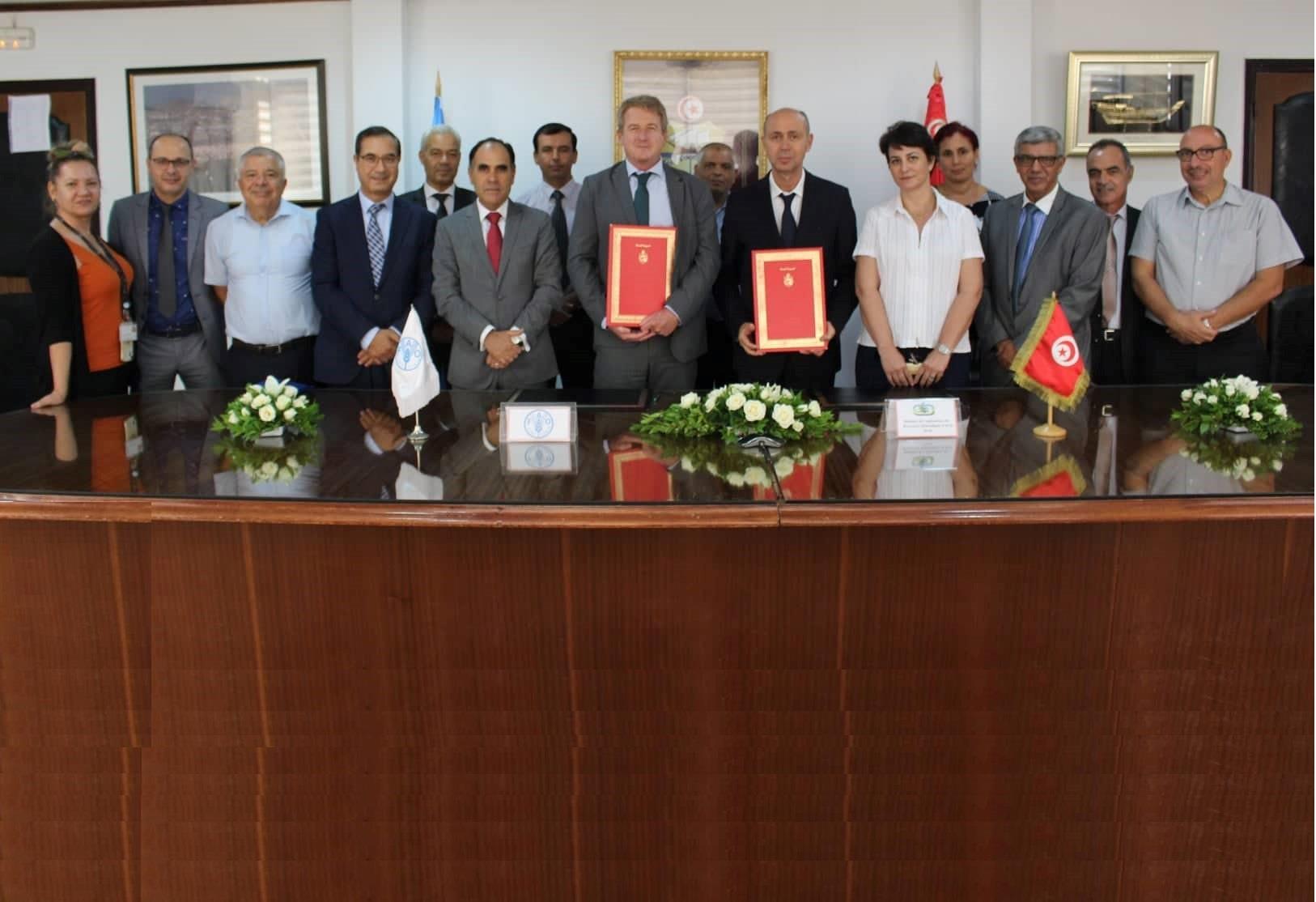A new Country Programming Framework for 2022 – 2025 between FAO and Tunisia

A new Country Programming Framework (CPP) for 2022 – 2025 has just been officially signed between the FAO and the Ministry of Agriculture, Water Resources and Fisheries. This document represents the reference frame that defines the work of FAO in Tunisia. Over the years, its formulation has gradually evolved from a so-called “project” approach to a programmatic and more concerted approach.
The areas of intervention of this CPP stem from the two strategic priorities on which the work of all the United Nations System agencies in Tunisia is built. The United Nations Sustainable Development Cooperation Framework (UNSDCF) for the period 2021-2025 aims by 2030 to "build trust to strengthen social cohesion and equity, with a view to enabling inclusive development, balanced between regions, and a generator of decent and resilient jobs".
This Country Programming Framework (CPF) defines the results to be achieved by FAO in support of national rural development and food security objectives. The expected contribution and results relate to the entire food system in the country.
FAO will work closely with the Ministry of Agriculture, Water Resources and Fisheries in the design and implementation of agricultural policies. Where necessary, FAO will facilitate capacity building.
Small farmers and agripreneurs, will be supported to make their sectors more competitive, profitable and inclusive. Allowing access to markets, strengthening the professionalization of actors in rural areas and more particularly women and young people and facilitating their empowerment is at the heart of the results expected in the field. FAO continues to provide support to professional organizations and helps bring together producers through the strengthening of their managerial and technical capacities and the mastery of digital tools.
For fisheries, concrete actions support the communities that depend on the sector. FAO will also support the sustainable development of certain value chains, but above all strengthen resilience to crises through better management of ecosystems. In terms of animal and plant health, capacity building and inter-institutional coordination mechanisms will allow better risk management as well as compliance with sanitary and phytosanitary standards which are constantly changing. This is important both for the national market and for a strong positioning in international markets.
FAO will continue to invest in the key sector of water and soil management with a focus on both water productivity and water accounting.
The search for economic autonomy for a large number of women living in rural areas has become a pillar of FAO's intervention in the country through training, support for collective action, access to markets and facilitated productive opportunities. Young people will continue to be the focus of targeted support projects. Access to and use of digital services and tools across all food systems will be supported, particularly as part of the FAO's 1000 Digital Villages Initiative.
